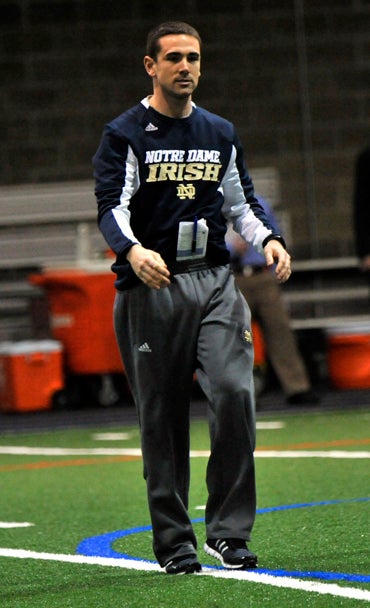Could a coach's influence truly be the deciding factor in a team's fortunes? Matt LaFleur, the Green Bay Packers' head coach, has been under intense scrutiny, his every move dissected, his decisions debated, and his leadership questioned, as he navigates the complexities of the NFL.
The air in Green Bay crackles with anticipation, a familiar sensation for fans of the Packers. But this season, the buzz carries a particular edge. It's a season of transition, of rebuilding, of proving that the Lombardi Trophy isn't just a distant memory. Central to this narrative is Matt LaFleur, the man entrusted with steering the Green and Gold back to glory. Appointed as the Packers' 15th head coach on January 8, 2019, LaFleur arrived in Wisconsin with a reputation for offensive innovation and a fresh perspective. His early tenure promised a renaissance, a revitalized Packers team capable of challenging for championships. Indeed, his initial success was undeniable, swiftly leading the team to the playoffs. The question now is, can he build upon the foundations he laid, or will the Packers' journey continue on a path fraught with near misses and unmet potential? The future of the franchise, it seems, rests on his shoulders.
LaFleur's tenure has been a rollercoaster of highs and lows. He started strong, building a winning culture and leading the Packers to the playoffs in his first three seasons. But the team's performance has been uneven, sparking debate among fans and analysts alike. While some credit him with fostering a positive environment and developing young talent, others point to strategic missteps and a perceived inability to consistently elevate the team to championship contention. The Packers' faithful are a passionate bunch, their expectations fueled by a history of gridiron greatness, the likes of Vince Lombardi and legendary quarterbacks like Bart Starr and Brett Favre. And now, as the team embarks on a new era, with a new quarterback at the helm, the scrutiny on LaFleur intensifies. Every play call, every personnel decision, every sideline interaction is examined, analyzed, and critiqued. The pressure is on.
The dynamics of professional football are intricate. Success is not solely determined by the coach, although a coach can be a critical piece of the puzzle. The coach is responsible for assembling a team, designing the game plan, and motivating his players to perform at their best. Beyond the on-field strategies, there is the art of managing personalities, fostering a winning culture, and adapting to the ever-changing landscape of the league. For LaFleur, this means navigating a complex web of talent, expectations, and external pressures. He must balance the needs of veterans with the development of young players, manage the expectations of a demanding fanbase, and make the difficult decisions that ultimately determine the team's fate. The path to success is never straightforward, and LaFleur understands that. The journey requires resilience, adaptability, and an unwavering belief in the vision for the team.
LaFleur's leadership style has often been described as collaborative, emphasizing communication and player input. He is known for his ability to connect with his players, fostering a team environment that prioritizes mutual respect and shared goals. This approach has earned him the respect of his players and contributed to the positive culture within the Packers' organization. However, there are always challenges, particularly when dealing with a roster filled with diverse personalities and varying levels of experience. LaFleur must carefully navigate the complexities of team dynamics, mediating conflicts, and maintaining a unified front. The ability to inspire and motivate, to create a shared vision, is a core component of his role. It requires constant adaptation, as the team's needs evolve throughout the season.
One of the most significant challenges for LaFleur has been the development of the quarterback position. Following the departure of a Packers legend, the team's future hinges on the performance of the new signal-caller. LaFleur must be adept at coaching, a demanding role that requires patience, tactical awareness, and a strong understanding of the quarterback's strengths and weaknesses. It's a process of continual learning, adaptation, and refinement. It demands nurturing talent, providing opportunities, and ensuring that the team's offense is built to exploit the quarterback's abilities. The outcome of this quarterback development will have a huge impact on his legacy.
Beyond the immediate concerns of wins and losses, LaFleur has a broader responsibility: to build a sustainable winning culture. This involves fostering a strong organizational structure, developing the coaching staff, and creating a positive atmosphere. It demands a long-term vision, one that emphasizes player development, strategic acquisitions, and a commitment to excellence. This is not a quick fix; it's a marathon, not a sprint. It's about building a foundation for sustained success, ensuring that the team can compete at the highest level for years to come. It demands constant evaluation, a willingness to adapt, and a relentless pursuit of improvement.
The Packers' season is always marked by its distinct brand of pressure. The relentless scrutiny of the media, the passionate expectations of the fans, and the high stakes of the competition combine to create an intense environment. LaFleur must learn to navigate these waters. The ability to manage these pressures, to maintain focus, and to make the right decisions under duress is essential. This is often the difference between success and failure. The ability to make adjustments and to adapt to changing circumstances, is key. He cannot be distracted by the noise, the speculation, and the criticism. He must have the ability to block out the distractions and remain focused on the task at hand: leading the Green Bay Packers to victory.
Recent performances have shown a coach willing to adapt. His flexibility has been evident in his play-calling, personnel decisions, and overall game management. This adaptability is a sign of a coach who is constantly learning and evolving, one who is willing to adjust to the strengths of his team and exploit the weaknesses of their opponents. It is a critical trait for success in the ever-changing NFL. It's about evolving alongside the players, the game, and the opponents they face each week. Success is not achieved by following a rigid plan; it comes from a willingness to adapt, to innovate, and to do whatever it takes to win.
LaFleur's success has been demonstrated in his ability to get the best out of his players. He has had the ability to identify talent, provide them with the tools and guidance they need to succeed, and foster an environment where players can thrive. This ability to inspire and motivate, to build confidence and to help players reach their full potential, is a key component of his leadership. He recognizes that players are individuals, each with their own unique strengths and weaknesses. He has developed the talent of his players.
The future of Matt LaFleur and the Green Bay Packers remains uncertain. There is much speculation. However, one thing is certain: The journey will be closely watched. The Packers are one of the NFL's most storied franchises, and LaFleur is tasked with writing the next chapter in their history. The challenges are real, the expectations are high, and the pressure is constant. But with his track record, his willingness to adapt, and his commitment to excellence, LaFleur is positioning himself for continued success. The coming seasons will test his mettle, and it will require him to make the most of his ability to inspire and motivate. The journey will be arduous, with its challenges. But LaFleur will be judged by what he achieves, how he leads the team, and whether he can eventually bring the Lombardi Trophy back to Green Bay. The final verdict remains open. The story continues to unfold.
| Category | Details |
|---|---|
| Full Name | Matthew LaFleur |
| Date of Birth | November 3, 1979 |
| Birthplace | Mount Pleasant, Michigan, USA |
| Education | Saginaw Valley State University |
| Current Role | Head Coach, Green Bay Packers |
| NFL Draft | Not Applicable (Did not play professionally) |
| Career Highlights |
|
| Notable Coaching Experience |
|
| Coaching Philosophy | Emphasizes collaboration, player development, and offensive innovation. |
| Key Achievements | Led the Packers to a strong start early in his tenure. Demonstrated an ability to develop young players. |
| Areas of Focus | Offensive strategy, quarterback development, team culture and performance. |
| Reference | Official Packers Website |



